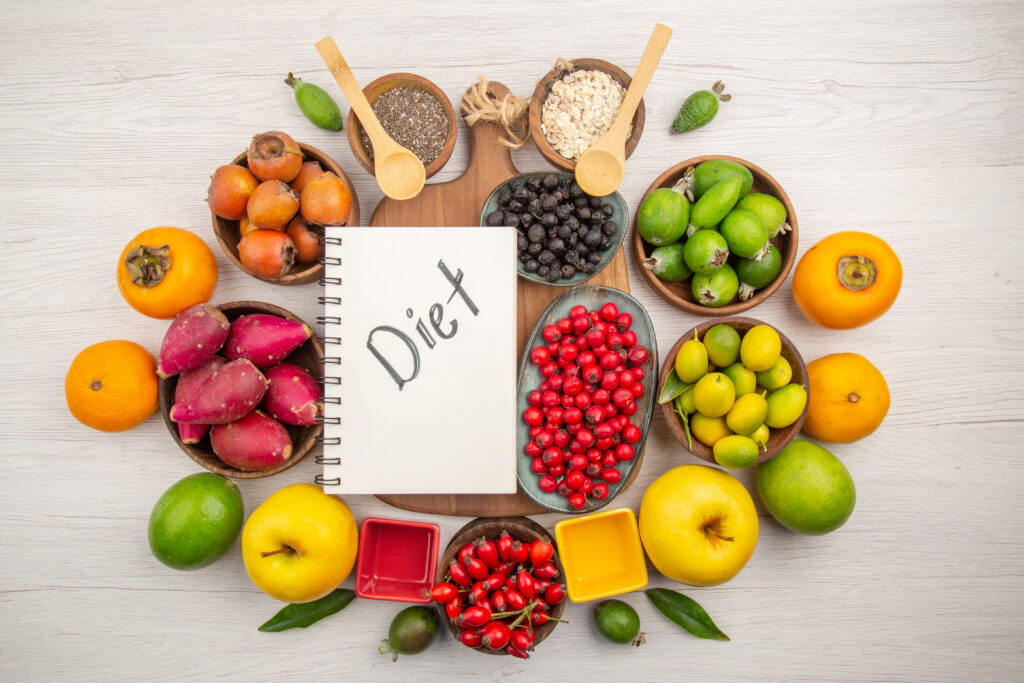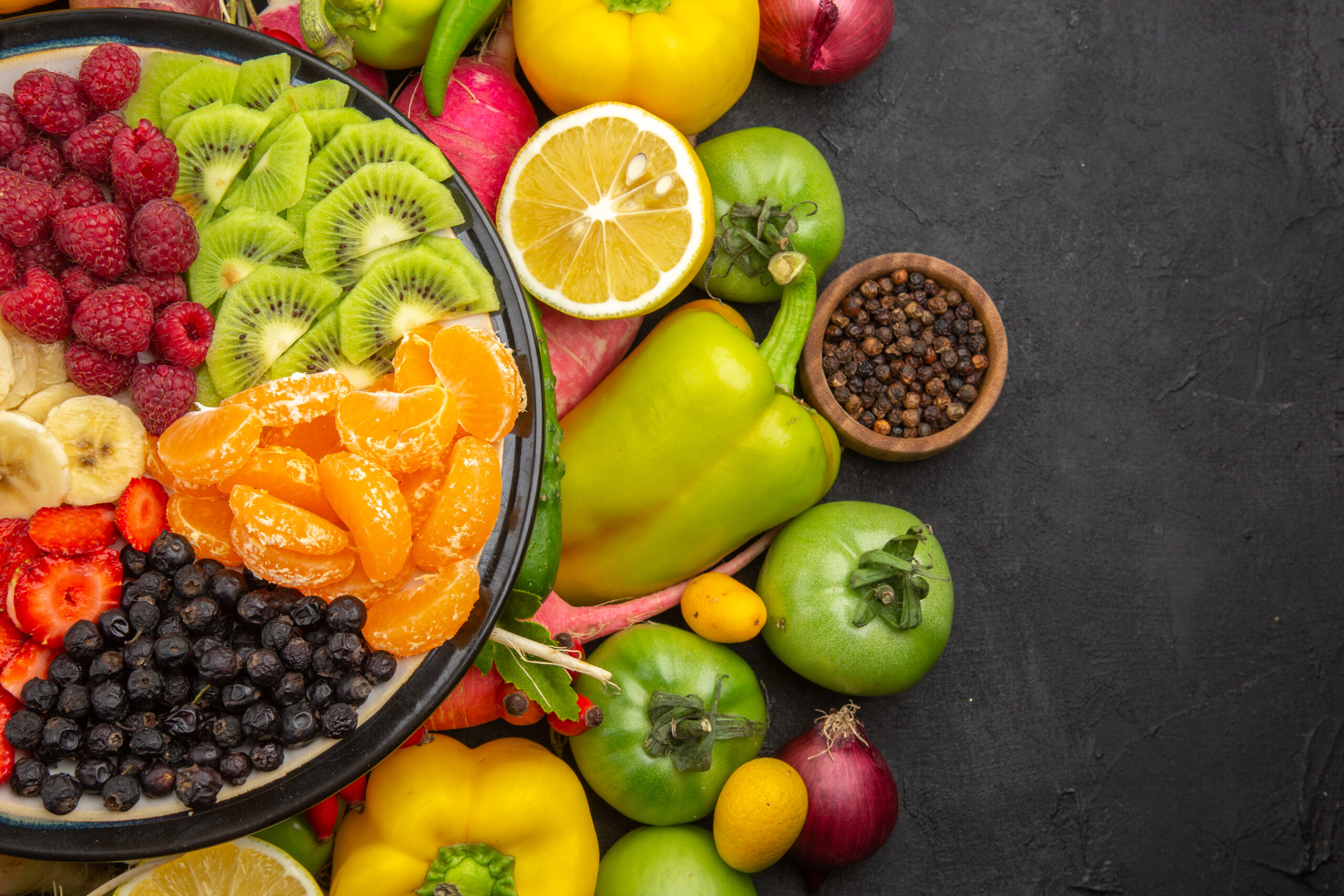Table of Contents
Introduction-Fruits on Keto Diet
In this article, we will explore about amazing fruits on Keto Diet. The ketogenic diet, short for the keto diet, is a low-carb, high-fat diet designed to help people reach ketosis, a metabolic state in which the body burns fat for fat instead of carbohydrates. He mostly focuses on eating more fat and protein, while strictly limiting his consumption of carbohydrates, including fruit.
Fruits often contain high sugar, especially fructose, which can affect the state of ketosis and affect the body’s ability to properly burn fat. For this reason, many fruits are not recommended on the keto diet.

Some low-carb fruits such as strawberries (strawberries, raspberries, and blackberries), avocados, and olives can be included in small servings of the ketogenic diet. These berries provide important nutrients, fiber, and antioxidants without affecting blood sugar.
Prioritizing vegetables, nuts, seeds, and healthy fats is an important part of the diet following a ketogenic diet plan. Although most fruits should be limited, low-carb options can add variety and flavor to your meals.
Fruits on Keto Diet
Fruits on Keto Diet-One of the misconceptions about the ketogenic diet is that all fruits are prohibited due to their sugar content. While it is true that many fruits are also high in carbohydrates, there are many fruits that can be included in a ketogenic diet plan as long as they are consumed in moderation and are not fed above the daily carbohydrate limit. Amazing fruits on Keto Diet are as following:
1- Avocado:
Avocado is the superstar fruit for those following a ketogenic diet. With only about 2 grams of carbs per 100 grams, avocados are high in heart-healthy monounsaturated fats that help with satiety and satiety. They are also an excellent source of potassium, fiber, and important vitamins such as C, E, K, and many B vitamins.
2- Blackberries:
blackberries are low-carb, with about 5 grams of carbohydrates per 100-gram serving. They are rich in dietary fiber, vitamin C, vitamin K, and manganese, which provide beneficial properties to support overall health.
3- Raspberries:

Like blackberries, raspberries provide about 5 grams of carbohydrates per 100 grams. They’re high in fiber, antioxidants, vitamin C, and manganese, making them a great addition to the ketogenic diet.
4- Strawberries:
strawberries are slightly lower in carbohydrates than blackberries and raspberries and contain about 6 grams of carbohydrates per 100-gram serving. However, they’re also a good source of vitamin C, manganese, and antioxidants, making them a healthy addition to the ketogenic diet.
5- Watermelon:
fruits are naturally sweet and refined but contain about 7g of net carbs per 100g serving.
Therefore, it should be consumed in moderation in the ketogenic diet. Watermelon provides vitamin A, C, and B complex, as well as the antioxidant lycopene.
6- Melon (leaves):
melons have about 8 grams of carbohydrates per 100 grams and should be eaten in small quantities on a ketogenic diet such as bananas. It provides vitamins A, C, and B complex, as well as minerals and antioxidants.
7- Coconuts (Fresh or Unsweetened Coconut Flakes):
Coconuts are a keto-friendly fruit that contains about 6 grams of carbohydrates per 100-gram serving.
It’s an excellent source of healthy fats, including medium-chain triglycerides (MCTs), which are quickly converted to body and brain-damaging ketones. Potassium and manganese are also important minerals found in coconuts.
8- Lemons and limes (in moderation for flavor):
Lemons and limes are low in carbohydrates and provide about 3 to 4 grams of net carbs per 100-gram serving. They are rich in vitamin C, which supports the immune system and acts as an antioxidant.
9- Star Fruit (Carambola):
star fruit is low in carbohydrates and provides about 3 grams of carbohydrates per 100-gram serving.
It provides vitamin C, dietary fiber, and antioxidants.
10- Kiwis (free): 100 grams of
kiwis contain approximately 12 grams of carbohydrates and should be eaten in moderation on a ketogenic diet. Kiwi is a good source of vitamin C, vitamin K, vitamin E, and fiber.
Summary
While these fruits can be consumed on a ketogenic diet, care should be taken to keep the total carbohydrate intake within the person’s daily carbohydrate amount, usually between 20 and 50 grams of carbohydrates per day. Everyone’s carb tolerance will be different, so it’s important to measure your blood ketone levels and adjust your fruit intake accordingly.
In addition to fruits, the ketogenic diet focuses on eating foods low in starch, good protein, and healthy fats, such as olive oil, avocados, nuts, and seeds. Depending on personal preference and tolerance, milk, eggs, and low-carb desserts may also be included.
Consulting a physician or registered dietitian is recommended before starting a ketogenic diet or changing any major foods. They can provide personalized guidance and ensure that the ketogenic diet meets individual health and nutrition goals. It is important to follow a ketogenic diet with balanced and proper planning to ensure overall health and success on your ketogenic journey. We hope, we have nicely explained “Fruits on Keto Diet”. Please message for further information.


[…] ketogenic (keto) diet focuses on consuming low-carbohydrate, high-fat foods to induce a state of ketosis, […]